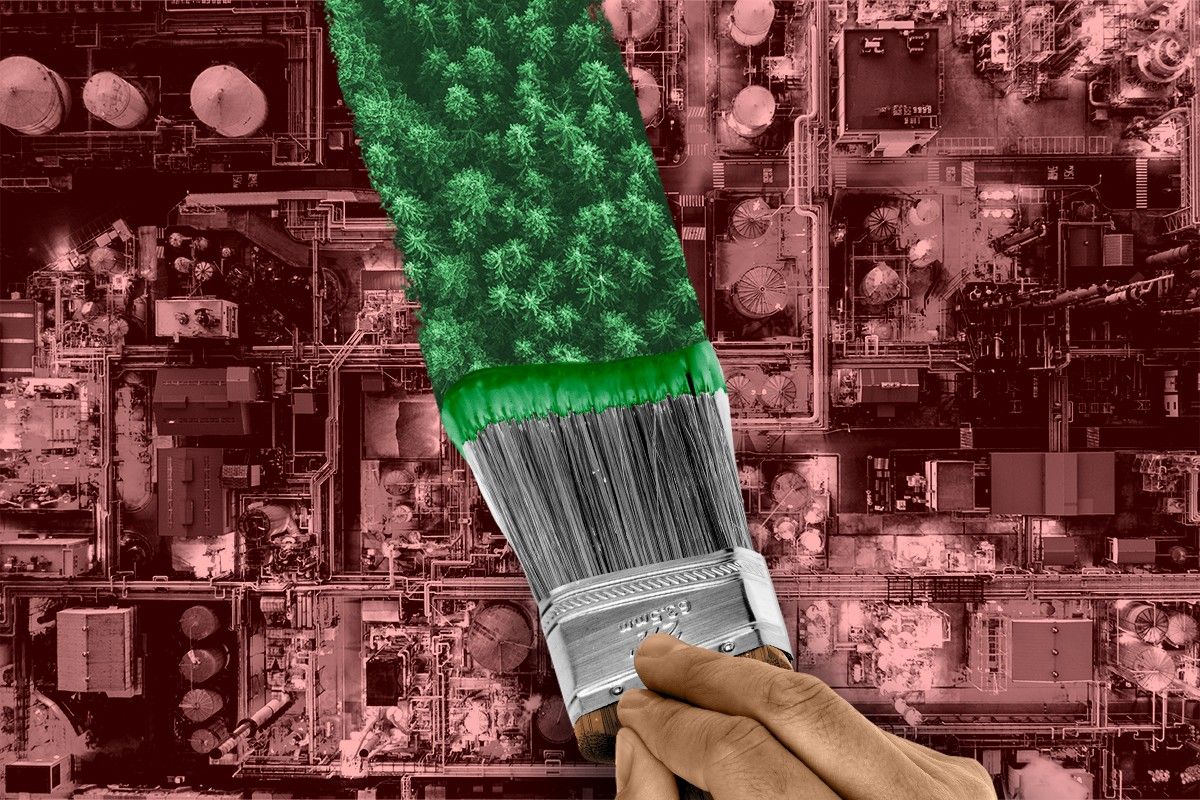The first Earth Day email of the season arrived in my inbox in July. A tea company wanted to assure me — either three months late or nine months early — that it honored “the spirit of Earth Day every day.”
The next email came in October, letting me know that the CEO of a campsite-booking app I’d never used had spoken at a “Celebration of Half-Earth Day” (come again?
Half-Earth Day?). That email was followed by another, from a music venue in Brooklyn, suggesting I observe Earth Day this year by attending “Our Planet Live In Concert.”
As April 22 approaches, the emails have become more frequent: I’ve been told to “Celebrate Earth Day with Adobe Stock”; invited to join an “Around the World” Earth Day challenge on Strava; pushed to read a frame company’s Earth Day pledges; promised my donation to the National Geographic Society will “be matched 2x — DOUBLING your impact as we celebrate Earth month”; and reminded by a pandemic-famous yoga instructor that Earth Day 2023 is “beautifully coinciding with the Lyrid Meteor Shower!”
With Saturday still days away, the onslaught is only getting started. Because Earth Day was intentionally not trademarked by its organizers when it began in 1970 — “we wanted groups to be able to take part, so we just made it public domain,” founder Denis Hayes
told The Wall Street Journal last year — the week leading up to Earth Day now presents marketers with an opportunity to connect with their email subscribers. Er, I mean, to raise environmental awareness!
But come on, we all know better. Complaints about
the corporate co-opting of Earth Day go back to at least 2003; these days, “it’s become fashionable for environmental journalists, myself included, to roll their eyes at the mere mention of Earth Day,” Rebecca Leber wrote for Mother Jones, going on to call April 22 “a trite, too-little-too-late rite marked more by corporate greenwashing than a recognition of the Earth’s complexity.” In fact, Earth Day-related advertising has gotten so out of hand that Hayes now says he regrets not getting that trademark (confusingly, “Earth Day Canada” is trademarked, specifically so it can prevent organizations from “shamelessly” attaching themselves to environmental causes).
Though the original Earth Day movement was explicitly antibusiness, that began to change
around 1990, when AdWeek says the emphasis of the holiday “shifted from regulatory objectives to protest and pressure directed at corporate behavior.” But by telling customers to vote with their wallets, activists unintentionally gave brands an opening to “burnish [themselves] as responsible, caring stewards of the environment.” Since then, all the worst environmental offenders — from McDonald’s to Chase to ExxonMobil — have run Earth Day-related promotions, to the horror of onlooking activists.
The truth is, the only relationship most people actually have with Earth Day anymore is as a consumer.
Interest in the holiday has steadily dwindled over the past decade, even as promotions and sales keep rolling in. If you aren’t in elementary school, the likely extent of your interaction with Earth Day this year will be deleting an unopened email soliciting a donation to the Sierra Club or hawking a socially responsible nonalcoholic beer.
Perhaps part of the issue is that most holidays commemorate something that has, at least superficially, already been achieved: think Independence Day, Labor Day, or Juneteenth. Though the first Earth Day massively raised awareness of the environmental movement and is credited for the momentum behind the passage of the Clean Water Act,
saving the ozone layer, and solving the problem of acid rain, there is nothing solved about climate change. As a holiday auto-entered into our phone calendars and pre-printed in our planners, though, it lacks its original urgency of a day of action and has been dulled by overexposure.
There is another way to look at it, though: that the brand opportunism around Earth Day is, in its own absurd way, actually a sign of progress. For one thing, promotions and ads are just how we celebrate things in America; there is no holiday on the calendar that can’t be used to sell a mattress. Also, it proves that appearing “green” has become unavoidably good business — so much so that even the world’s most powerful companies and biggest polluters want to be associated with the day, however disingenuously.
Buying something you don’t need is inarguably antithetical to the spirit of Earth Day; we’re not dubbing it “Greenwashing Week” for nothing. Still, the fact that Hyundai
once tried to sell people a car during Earth Week, all because of the success of a 1970 environmental protest, is in its own odd and amusing and distinctly American way, a victory.











 Pfluger in the U.S. Capitol. Photo by Andrew Harnik/Getty Images
Pfluger in the U.S. Capitol. Photo by Andrew Harnik/Getty Images